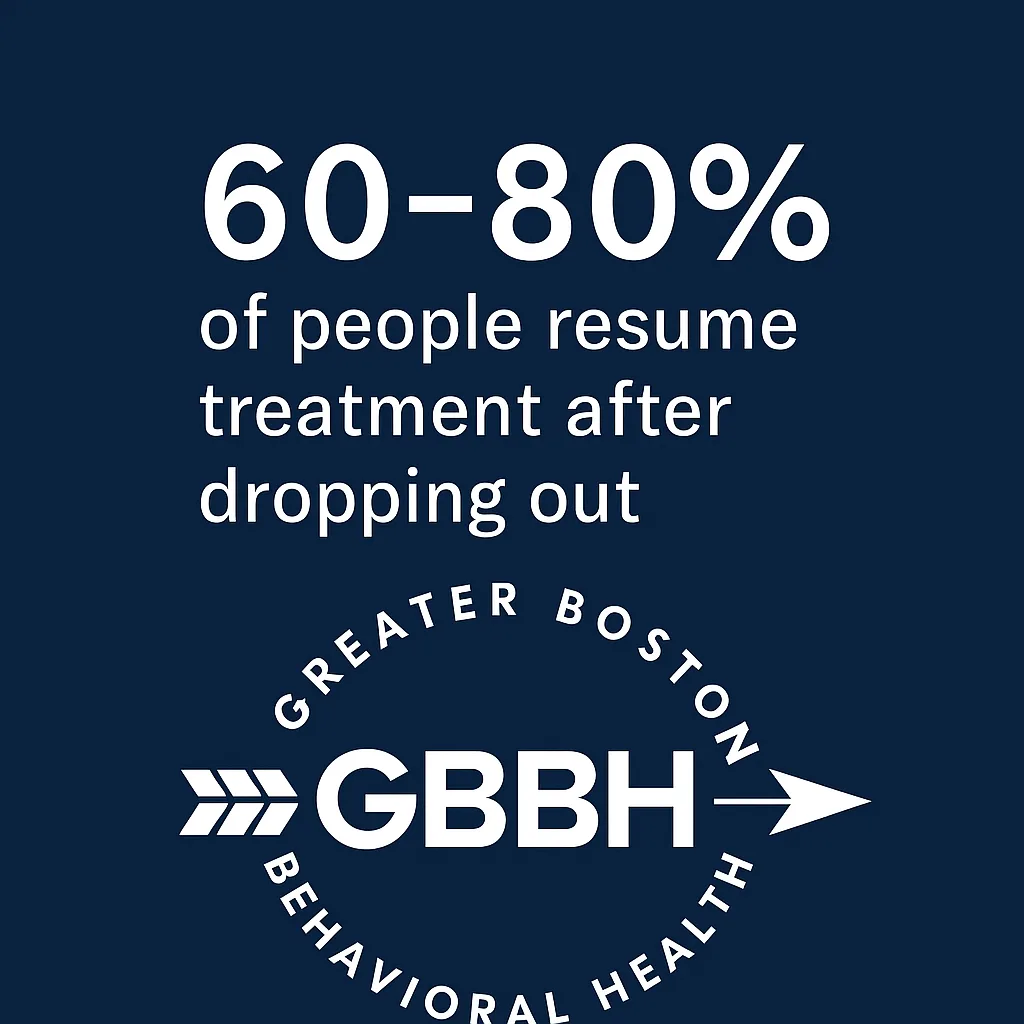I walked out of treatment thinking it was over for me. That I was one of those “couldn’t cut it” people. That thought sat heavy on my chest for weeks. The worst part wasn’t leaving—it was waking up the next day wondering if I’d ever be able to come back.
This blog isn’t a perfect comeback story. It’s a real one. About how I fell off track, how shame nearly kept me stuck, and how a partial hospitalization program in Boston helped me recover without needing to be “perfect” first.
I Thought I’d Failed for Good
The first week after dropping out was like breathing after holding my breath for too long. But soon, breathing turned to sinking. All the reasons I went to treatment in the first place didn’t disappear—they just got louder. And now I had this extra weight: You didn’t finish. You wasted everyone’s time. You’re weak.
But I found out something important. You don’t have to stay in that shame spiral. And walking away doesn’t mean the door stays shut forever.
The Silent Spiral: Why Shame Hits Hard After Leaving Treatment
I didn’t expect the shame to come in waves. Little things would set it off. A family member asking, “How’s treatment going?” A social media post about mental health wins. Even passing the building where I used to go.
Shame didn’t just make me feel bad—it convinced me I wasn’t allowed to get better anymore.
It wasn’t just about failing. It was about feeling unwelcome in the spaces that were supposed to help me heal. Like I’d broken some secret rule.
What finally interrupted that spiral was realizing that most people in treatment had stumbled, left, or wanted to quit at some point. The difference wasn’t who stayed perfect—it was who came back.
Finding My Way Back: Why a Partial Hospitalization Program Was the Right Fit
When I finally reached back out, I was terrified they’d be cold or clinical. But Greater Boston Behavioral Health didn’t ask me, “Why did you leave?” They asked me, “How can we support you now?”
That’s when I learned about their partial hospitalization program in Boston. PHP sounded different from what I had tried before:
- It wasn’t live-in, but it offered structure.
- It wasn’t about labels—it was about current support needs.
- It gave me daily check-ins but allowed me to sleep in my own bed.
- It focused on building skills, not just managing symptoms.
After weeks of spiraling, I realized I didn’t need to start from scratch. I just needed to restart—with the right kind of support.
What Made Partial Hospitalization the Game-Changer for Me
1. Structure Without Pressure
The program gave me rhythm. Group therapy, one-on-ones, daily routines—but with space to catch my breath. I wasn’t micromanaged, but I wasn’t lost.
2. Human Connection, Not Judgment
No one treated me like a failure. No side-eyes, no “what happened?” questions. Just people who had been there too.
3. Real Tools for Real Life
We didn’t just talk about feelings—we worked on coping skills. How to deal with triggers. How to set boundaries. How to rebuild trust in myself.
4. A Soft Landing Place to Rebuild
PHP was like scaffolding. I didn’t have to hold up my whole life on shaky legs. The program helped me rebuild brick by brick until I could stand again.
It’s Not “Starting Over”—It’s Restarting From Experience
One of the most freeing things I realized was this: I wasn’t going back to square one. I was returning wiser, with more self-awareness. The staff knew that. They didn’t treat me like a lost cause—they treated me like someone who’d learned something valuable in a hard way.
By the end of my PHP program, I didn’t just feel “stabilized.” I felt capable. I had skills, strategies, and confidence that I could use after the program ended. If you’re local to Boston, Dedham, Needham, Waltham Massachusetts, GBBH offers help that meets you exactly where you are.
Five Things I Wish Someone Had Told Me When I Dropped Out
1. You’re Not the First Person to Leave Early—And You Won’t Be the Last
Lots of people hit pause. It doesn’t make you broken.
2. You Can Come Back Sooner Than You Think
I thought I had to be “in crisis” again to rejoin treatment. That’s not true. Reaching out early saved me from sinking deeper.
3. Staff Expect People to Leave and Return—It’s Normal
You won’t be judged for leaving. The right team understands that healing isn’t linear.
4. There Are Options That Fit Different Seasons of Recovery
You don’t have to repeat the same treatment track. Partial hospitalization programs offer flexibility and structure.
5. The Scariest Call You Make Might Be the Best One
Making the call back was terrifying. But it was also the moment I took my power back.
FAQs About Partial Hospitalization Programs in Boston
What is a partial hospitalization program (PHP)?
A partial hospitalization program is a structured mental health program that offers intensive therapy during the day while allowing clients to return home at night. It’s designed for people who need more support than outpatient therapy but don’t require 24/7 inpatient care.
Who is PHP a good fit for?
PHP is ideal for people:
- Who need daily mental health support but want to stay at home
- Transitioning from inpatient care
- Struggling with intense symptoms but still able to live safely at home
- Who’ve previously left treatment and need structured re-engagement
How long does a PHP last?
Most PHP programs, including those at Greater Boston Behavioral Health, run for several weeks with daily sessions (usually Monday through Friday). The exact length depends on individual progress and goals.
Is it embarrassing to come back after dropping out?
Not at all. Many people take breaks from treatment and return. Reaching out again shows strength, not weakness. Programs like Greater Boston Behavioral Health’s PHP are built to welcome people back without judgment.
What if I’m scared to reach out?
It’s normal to feel anxious. The team at Greater Boston Behavioral Health is experienced in supporting people through that first call back. You don’t need to have all the answers—they’ll guide you step by step.
You Don’t Need to Be Perfect to Restart—You Just Need to Reach Out
I thought leaving treatment was my ending. I was wrong. Returning to a partial hospitalization program in Boston gave me the reset I desperately needed—without judgment, without shame, and without having to do it perfectly.
If you’re stuck in that spiral, this is your sign: you’re allowed to come back. You’re allowed to start again.
Call (888) 450-3097 or visit to learn more about our partial hospitalization program services in Boston, Massachusetts.
You are not your lowest moment. You are the person choosing to stand back up.


